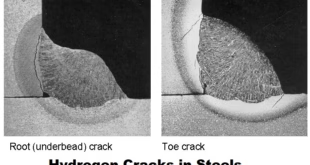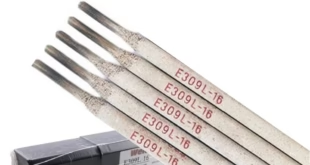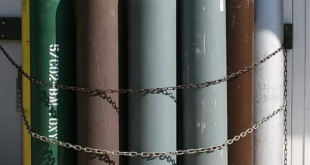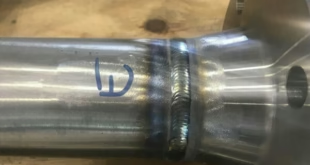Welding Careers Opportunities and Certification Programs
Introduction
Definition of Welding Careers
Welding careers refer to the various job roles and opportunities available to individuals who possess the skills and knowledge necessary to perform welding operations. Welding is the process of joining two materials together by heating and melting them to create a strong bond. Welding careers are essential in various industries, including construction, manufacturing, automotive, aerospace, and more.
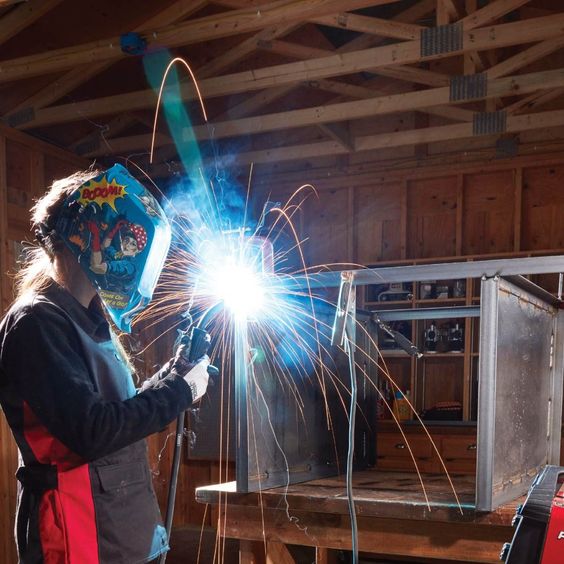
Importance of Welding Careers in Various Industries
Welding careers are critical in various industries as they play a significant role in the manufacturing and constructing various products and structures. These industries rely heavily on welding to join materials together, create structures, and build products that meet specific design specifications. Welding careers also offer a wide range of job opportunities that provide individuals with the chance to work in various fields and industries.
Overview of the Opportunities and Certification Programs in Welding Careers
The welding industry offers a diverse range of opportunities that require different levels of skill and expertise. From welding technicians to welding engineers, the welding industry has a range of job opportunities available to individuals with the right qualifications. Additionally, various certification programs exist that can help individuals acquire the skills and knowledge necessary to work in welding careers. These programs provide individuals with the opportunity to demonstrate their skills and knowledge to potential employers, opening up new job opportunities and potentially higher salaries.
Opportunities in Welding Careers
Welder
A welder is an individual who performs the actual welding operations. They are responsible for joining materials together using various welding techniques and equipment. Welders typically work in various industries, including construction, manufacturing, and repair.
Welding Technician
A welding technician is responsible for setting up, operating, and maintaining welding equipment. They also conduct inspections and tests to ensure welding operations meet quality standards. Welding technicians often work in the manufacturing and repair industries.
Welding Inspector
A welding inspector is responsible for ensuring that welding operations meet quality standards and regulatory requirements. They inspect and test welds and welding procedures, identify defects, and make recommendations for improvements. Welding inspectors often work in the construction, manufacturing, and repair industries.
Welding Engineer
A welding engineer is responsible for designing and overseeing welding operations. They develop welding procedures, create and implement quality control measures, and oversee welding projects. Welding engineers typically work in the engineering and construction industries.
Welding Instructor
A welding instructor is responsible for teaching welding techniques and procedures to students. They develop curriculum, create lesson plans, and provide hands-on training to students. Welding instructors often work in vocational schools and community colleges.
Other Opportunities in Welding Careers
Other opportunities in welding careers include welding supervisors, welding project managers, welding sales representatives, and welding consultants. These job roles require varying levels of experience and expertise in welding and related fields.
Certification Programs in Welding Careers
American Welding Society (AWS) Certification Programs
The American Welding Society (AWS) offers a range of certification programs for welders, welding inspectors, welding supervisors, and welding engineers. AWS certification programs are recognized in the welding industry and demonstrate an individual’s proficiency in welding procedures and techniques.
National Center for Construction Education and Research (NCCER) Certification Programs
The National Center for Construction Education and Research (NCCER) offers certification programs for welding technicians, welding inspectors, and welding instructors. NCCER certification programs are designed to prepare individuals for entry-level and advanced-level welding careers.
Other Certification Programs in Welding Careers
Other certification programs in welding careers include the Certified Welding Inspector (CWI) program offered by the American Society of Nondestructive Testing (ASNT), the Certified Welding Educator (CWE) program offered by the American Welding Society (AWS), and the Welding Fabricator Certification (WFC) program offered by the Fabricators & Manufacturers Association (FMA).
Certification programs in welding careers demonstrate an individual’s skills, knowledge, and qualifications in welding procedures and techniques. These programs provide individuals with the opportunity to demonstrate their proficiency to potential employers and advance their careers in welding.
Benefits of Certification in Welding Careers
Improved Job Prospects
Certification in welding careers can improve an individual’s job prospects by demonstrating their skills and knowledge to potential employers. Employers often prefer certified professionals, as they know they have met certain standards and can perform welding operations with proficiency.
Higher Salary Potential
Certification in welding careers can also lead to higher salary potential as it demonstrates an individual’s proficiency in welding procedures and techniques. Certified welders often earn higher salaries than non-certified welders, and the same goes for other job roles in welding careers.
Increased Credibility and Recognition
Certification in welding careers increases an individual’s credibility and recognition in the welding industry. It demonstrates their dedication to the profession and their commitment to maintaining high standards in welding operations.
Opportunities for Career Advancement
Certification in welding careers opens up opportunities for career advancement. It allows individuals to specialize in certain welding techniques, takes on higher-level job roles, and move up the career ladder.
Other Benefits of Certification in Welding Careers
Other benefits of certification in welding careers include access to professional development and networking opportunities, increased job security, and the satisfaction of knowing that one has met industry standards and is a skilled professional in their field.
Certification in welding careers offers numerous benefits that can lead to better job prospects, higher salaries, and opportunities for career advancement. It demonstrates an individual’s dedication to their profession and their commitment to maintaining high standards in welding operations.
Eligibility and Requirements for Certification in Welding Careers
Educational Requirements
Certification in welding careers typically requires a minimum level of education, which varies depending on the type of certification program. Some certification programs may require a high school diploma or equivalent, while others may require a technical degree or a specific number of college credits.
Work Experience Requirements
Most certification programs in welding careers require a certain amount of work experience in the field. This experience may vary depending on the type of certification program, but it typically ranges from 1-5 years of welding experience.
Training and Testing Requirements
Certification in welding careers often requires the completion of specific training programs and passing various tests. Training programs may include classroom instruction, hands-on welding experience, and practice with welding equipment. Tests may include written exams, practical exams, and skills demonstrations.
Other Eligibility and Requirements for Certification in Welding Careers
Other eligibility and requirements for certification in welding careers may include membership in professional organizations, adherence to codes of conduct and ethics, and continuing education requirements to maintain certification status.
How to Prepare for Certification in Welding Careers
Training and Education Options
One of the best ways to prepare for certification in welding careers is to complete training and education programs that are designed specifically for the certification exam. Many vocational and technical schools offer welding programs that can prepare individuals for certification exams. These programs may include classroom instruction, hands-on training, and welding practice using specific welding techniques.
Practice Tests and Study Materials
Another way to prepare for certification in welding careers is to utilize practice tests and study materials. Practice tests can give individuals an idea of what to expect on the actual certification exam and can help them identify areas where they may need to improve their knowledge or skills. Study materials such as books, online resources, and training videos can help individuals gain a deeper understanding of welding techniques and concepts.
Mentoring and Apprenticeship Programs
Mentoring and apprenticeship programs can be valuable resource for individuals preparing for certification in welding careers. These programs provide individuals with hands-on experience and guidance from experienced welders. They can help individuals develop their welding skills, build confidence, and gain a better understanding of the industry.
Other Preparation Options for Certification in Welding Careers
Other preparation options for certification in welding careers include attending industry conferences, workshops, and seminars, participating in online forums and discussion groups, and networking with other professionals in the industry. All of these options can provide individuals with valuable insights and knowledge about the industry, which can help them prepare for certification exams.
FAQs
What is the best certification for welding?
The best certification for welding depends on an individual’s specific career goals and the type of welding they specialize in. However, some of the most recognized and respected certifications in the welding industry are offered by the American Welding Society (AWS), including Certified Welder (CW), Certified Welding Inspector (CWI), Certified Welding Educator (CWE), and Certified Welding Supervisor (CWS).
What are the four main types of welding certifications?
The four main types of welding certifications are performance-based, procedure-based, welder qualification, and welding inspection. Performance-based certifications evaluate a welder’s ability to perform specific welding techniques. Procedure-based certifications evaluate an individual’s ability to create and follow welding procedures. Welder qualification certifications assess a welder’s ability to produce quality welds under specific conditions. Welding inspection certifications assess an individual’s ability to inspect and evaluate welds for quality and safety.
What is a good career path in welding?
A good career path in welding depends on an individual’s skills, interests, and goals. Some popular career paths in welding include becoming a welder, welding technician, welding inspector, welding engineer, welding instructor, or pursuing a career in a specialized area such as pipeline welding, underwater welding, or aerospace welding.
What is welder certification and qualification?
Welder certification and qualification are processes that evaluate a welder’s ability to produce quality welds under specific conditions. Certification involves testing a welder’s skills on a specific welding process, while qualification involves testing a welder’s skills on a particular joint configuration, thickness, and welding position.
How many certificates are there in welding?
There are numerous certificates available in welding, ranging from basic welding certifications to specialized certifications in areas such as underwater welding, pipeline welding, and aerospace welding.
What is the highest paying welding qualification?
The highest paying welding qualifications are typically those that require specialized skills and experience, such as certified welding inspector (CWI), certified welding supervisor (CWS), or welding engineer.
What are the top 5 welding jobs?
The top 5 welding jobs include welder, welding technician, welding inspector, welding engineer, and welding instructor.
Which country is best for welding jobs?
Countries with high demand for welding jobs and good pay include the United States, Canada, Australia, Germany, and Norway.
What type of welder is in high demand?
Welders with experience and certification in specialized areas such as pipeline welding, underwater welding, and aerospace welding are in high demand. Additionally, welders with experience in advanced welding techniques such as robotic welding and laser welding are also in high demand.
Conclusion
Welding careers offer a range of opportunities, including positions such as welder, welding technician, welding inspector, welding engineer, and welding instructor. Certification programs in welding careers are available through organizations such as the American Welding Society (AWS) and the National Center for Construction Education and Research (NCCER). Benefits of certification in welding careers include improved job prospects, higher salary potential, increased credibility and recognition, and opportunities for career advancement. Certification in welding careers is important because it demonstrates an individual’s knowledge, skills, and commitment to the profession. It can help individuals stand out in a competitive job market, and can lead to higher earning potential and career advancement opportunities. Welding careers offer a wide range of opportunities for individuals who are interested in working in the field. Certification programs provide individuals with the knowledge, skills, and credentials needed to succeed in welding careers. By completing certification programs and gaining hands-on experience, individuals can advance their careers in welding and achieve their professional goals.
 Welding of Welders All about Welding and Welders
Welding of Welders All about Welding and Welders
